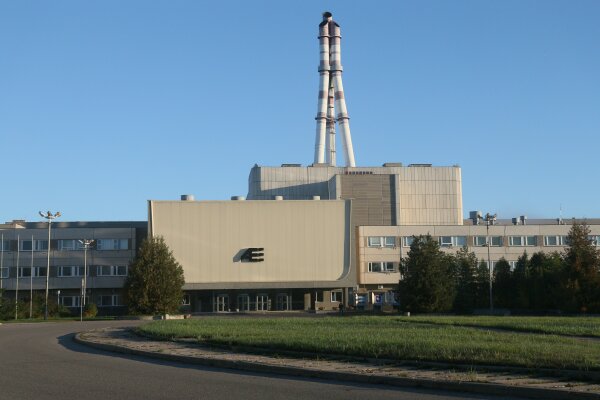Environmental impact significance assessment of the deep geological repository to be performed by “Sweco Lietuva”
2024

Ignalina Nuclear Power Plant signed a services procurement contract on 10 December this year for the environmental impact risks/significance assessment of the deep geological repository (DGR) for radioactive waste. The procurement contract with a value of EUR 448 thousand was concluded with UAB “Sweco Lietuva”.
According to the contract, the Swedish capital engineering and architecture company “Sweco Lietuva” will, over the coming years, carry out a comprehensive environmental risks/significance assessment of the installation and operation of the DGR, i.e., it will fully investigate the direct and indirect impacts of the DGR on environmental elements such as soil and ground depth, air and groundwater, landscape and biodiversity in the potentially suitable DGR installation areas, and will develop recommendations for the significant environmental impact mitigation measures, as well as the assessment methodology.
“We are pleased with the work entrusted to our company. We are aware of the importance of this project not only for today’s residents of Lithuania, but also for our future generations and of our responsibility for the proper selection of a site for the long-term storage of radioactive waste. Based on our long-term experience in other important projects for Lithuania and the feeling of expert support from the entire Sweco Group, we can confidently say that we are fully prepared to meet the customer’s expectations regarding the quality and conditions of the work entrusted to us,” says Liudas Zalunskis, CEO of UAB “Sweco Lietuva”.
The purpose of a deep geological repository is to ensure that radioactive waste is safely isolated from living nature for millennia. This requires a detailed analysis of whether the DGR could have long-term impacts on groundwater, air, ecosystems and other components of the environment, and the extent of such impacts. In addition, the specificity and uniqueness of the DGR project to be implemented determines that the selection of a specific area for this object requires the evaluation of not only geological aspects, but also social, economic, environmental and material, cultural and historical values, as well as knowledge of the local communities.
“This new stage marks an important step towards sustainable decision-making by involving the wider public in the decision-making process. Once the supplier’s assessment is complete, a comprehensive methodology will be developed and made available to the public. By encouraging active participation, we will invite the public to submit comments and suggestions to ensure that the project solutions are not only technically justified, but also sustainable – in line with the needs and environmental principles of both present and future generations,” says Andrius Vyšniauskas, Manager of the Deep Geological Repository Project at the Ignalina Nuclear Power Plant.
According to A. Vyšniauskas, the public consultation on the DGR installation site selection process was held in March this year and allowed to clearly evaluate the issues raised, most of which were related to the possible environmental impact, therefore the involvement of representatives of municipalities and the general public in the preparation of the methodology will allow to answer the questions raised by local communities and ensure a transparent and open decision-making process.
It is important to emphasise that the final environmental impact assessment will not be carried out at this stage, but the information collected will be used as a basis for more detailed investigations in the future.
To date, 77 potential sites in 29 Lithuanian municipalities have been identified, which will be comprehensively investigated and evaluated until 2047. Only after a complex and detailed investigation and coordination with the public, in 2047 it is planned to select the final site for the deep geological repository.
Deep geological repository, where spent nuclear fuel and other long-lived radioactive waste will be finally disposed of in the future, is the only sustainable and final way of storing such waste and is being implemented by other advanced countries such as Switzerland, France, Sweden and Finland. Finland, for example, currently has the fully equipped DGR and plans to start operations in the near future, while France has selected the final site for the DGR installation and is carrying out licensing procedures.
Today, one of the main objectives of the INPP is to carry out the works for the immediate dismantling of the decommissioned nuclear power plant without leaving an unreasonable burden of radioactive waste management to future generations. The mission of the company is to create a clean environment through the sustainable management of the legacy of nuclear activities. The final completion of the operation and dismantling of the power plant is planned by 2040, the commitment is – to build and operate a deep geological repository by 2080, and during this period to establish itself as an advanced new generation company and successfully develop its activities further.

